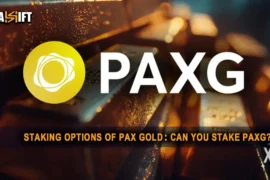While most people are familiar with public blockchains like Bitcoin and Ethereum, a lesser-known but equally important type of blockchain is quietly reshaping enterprise adoption: the consortium blockchain. This semi-private model allows a group of organizations to jointly maintain a blockchain network, offering both decentralization and controlled governance.
In this guide, we’ll explain what consortium blockchains are, how they differ from public and private chains, and why they are especially useful in industries like banking, supply chain, and healthcare. Whether you’re a developer, investor, or business strategist, understanding consortium blockchain architecture is key to grasping where Web3 enterprise infrastructure is headed.
What exactly is Consortium Blockchain?
A variety of companies or entities administer and operate consortium blockchains. Customers must be invited to join and be authorized before they can use the network’s resources since it is a distributed ledger with permissions.
The consortium blockchain divides the maintenance of the distributed ledger system and verification of transactions among the member entities. As opposed to being managed by a single governing body, organizations that are members administer the nodes of the network that validate payments and maintain the blockchain.

Read More: Things to note before investing in cryptocurrencies
This type of blockchain is commonly utilized in industries where several firms must collaborate on one system while maintaining ownership of their information and activities.
In generally, consortium blockchains strike a compromise among transparency and authority, making them suitable for applications in which several widely recognized and reputable parties must work on one platform at once.
How Consortium Blockchains Work
In a consortium blockchain, a selected group of organizations share the responsibility of maintaining the network. Each member runs a node and participates in consensus protocols, often using permissioned models like PBFT (Practical Byzantine Fault Tolerance).
Smart contracts can be deployed across the network, but only validated participants can execute or verify transactions. This controlled environment ensures performance, security, and accountability across entities.
Benefits of Consortium Blockchains
-
Improved Performance: Since only a limited number of nodes participate in the consensus process, the system can achieve higher throughput and faster transaction validation. This is particularly advantageous for enterprise use cases where efficiency is critical and workloads are high.
-
Controlled Privacy: Consortium blockchains are permissioned, meaning only authorized entities can view or write data on the blockchain. This ensures that sensitive business or user information remains accessible only to those with appropriate access rights, aligning well with privacy regulations and corporate security standards.
-
Shared Governance: Rather than being managed by a single entity, a consortium chain allows for distributed governance. Participating members can vote on decisions, validate transactions, and shape protocol upgrades collectively. This balance fosters mutual trust and long-term collaboration between competitive stakeholders.
-
Cost Efficiency: By sharing infrastructure and operational responsibility among multiple partners, consortium blockchains help reduce overhead costs. Instead of building siloed systems, organizations can leverage a shared ledger to eliminate duplication, streamline workflows, and minimize integration expenses.
Read More: What is GPU mining and how does it work?
Consortium vs. Public vs. Private Blockchains
A consortium blockchain, also known as a federated blockchain, is a type of blockchain where the consensus process is controlled by a predefined group of nodes. This stands in contrast to:
-
Public blockchains (e.g., Bitcoin, Ethereum) that are open to anyone and completely decentralized.
-
Private blockchains (e.g., Hyperledger Fabric used in-house by a single company) that are entirely centralized.
Consortium blockchains strike a balance: they allow multiple entities to collaborate without giving full control to a single party. This makes them ideal for B2B or industry-specific networks.
Comparison Table:
| Feature | Public | Private | Consortium |
|---|---|---|---|
| Access | Open to all | Restricted to one org | Restricted to group |
| Decentralization | High | Low | Moderate |
| Transaction Speed | Slower | Faster | Faster |
| Transparency | Full | Limited | Shared within group |
| Governance | Community-driven | Centralized | Multi-party |
What are the Consequences of the Consortium Blockchain?
- A consortium’s concentrated network arrangement makes it easier for malicious parties to break network restrictions.
- Due to the rising number of participants, updating a platform like this is difficult, since this procedure demands the approval of each network user.
- The consortium’s efficacy is continually being refined.
- A partnership among businesses can aid in the growth of the sector. However, the likelihood of such a firm exists at this location.
- Creating such a platform is time-consuming and requires several entities to collaborate on communication standards.
Use Cases of Consortium Blockchain
- Healthcare
- Finance
- Identity Verification
- Real Estate
- Government Services
- Control of the Supply Chain
- Energy Management
- Intellectual Property Management
Conclusion
As Web3 evolves beyond individual ownership toward collaborative infrastructure, consortium blockchains offer a scalable, secure path forward for institutions. They bring together the best of both worlds, governance control and blockchain-based transparency, while paving the way for real-world adoption.
For businesses seeking to balance privacy, speed, and trust in their blockchain strategy, consortium models may be the optimal solution moving into 2025 and beyond.
FAQs
What is the purpose of a consortium blockchain?
A consortium blockchain enables a group of organizations to jointly manage a blockchain network. It combines decentralization with controlled access, making it ideal for business collaborations.
How does a consortium blockchain differ from a public blockchain?
Public blockchains are open to everyone and fully decentralized. Consortium blockchains restrict access to selected members and offer shared governance between multiple entities.
What are examples of consortium blockchain platforms?
Popular examples include R3 Corda (used in finance), IBM Food Trust (supply chain), and Hyperledger Besu for enterprise solutions.
Are consortium blockchains secure?
Yes. Because only vetted participants can join the network, consortium blockchains provide a high level of privacy and security while still maintaining distributed control.
What industries benefit from consortium blockchains?
Industries like banking, supply chain logistics, healthcare, and identity management often use consortium chains to enhance collaboration and data integrity.
Can a consortium blockchain integrate with public blockchains?
Yes. Hybrid solutions allow consortium chains to anchor data to public blockchains or interact via cross-chain bridges for broader interoperability.
Who manages a consortium blockchain?
Governance is shared between pre-approved organizations, which jointly make decisions about node management, upgrades, and transaction validation.






